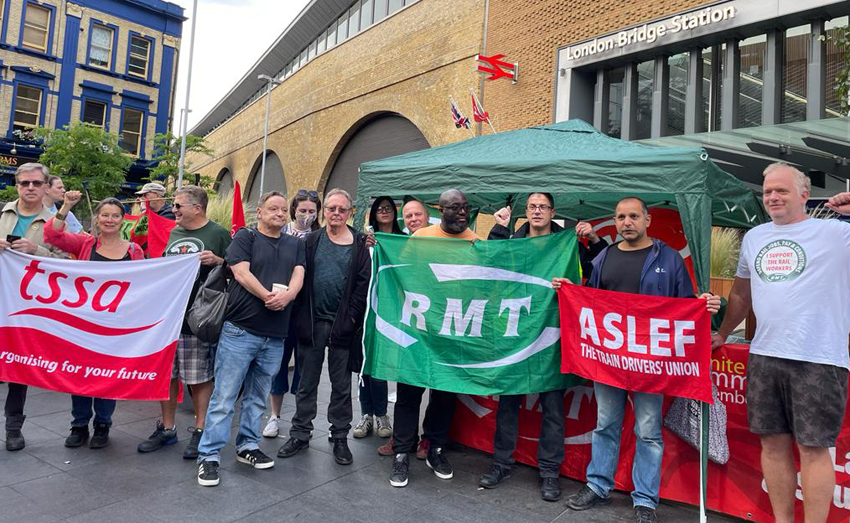THE TORY war on the railways and railway workers is to resume immediately, with reports yesterday of mass ticket office closures being ‘hardwired’ into the new Tory Truss regime’s contracts with the rail privateers.
The RMT warns that under the Tory plans almost 1,000 ticket offices are to close with the loss of thousands of jobs, creating accessibility problems for different types of travellers, including the elderly, people with disabilities and foreign visitors.
ASLEF is expected to announce tomorrow that its members will take national strike action on 1st and 5th October.
The RMT and TSSA rail unions are also expected to announce further strike action on pay and in defence of ticket offices.
The planned closure of ticket offices is part of a wider industry attack on jobs and services.
Yet in stark contrast, the private rail industry is taking in excess of £500m in profits annually and many rail bosses have £1 million+ pay packets.
In August, the RMT and TSSA announced that they were joining forces to oppose ticket office closures.
RMT General Secretary, Mick Lynch, said: ‘The floodgates have now opened for the annihilation of ticket offices. Ticket office staff make sure our railways are safe, secure and accessible. Wholesale ticket office closures would be disastrous and leave our railway deserted. Disabled and elderly passengers will be particularly affected.’
Mick Carney, TSSA President and ticket office clerk for train operator Southeastern, said: ‘The move to close ticket offices is beyond short-sighted and typical of a Tory government who understands the cost of everything but the value of nothing.
‘The elderly, disabled, less tech-savvy and many tourists rely on well-trained ticket office staff to not only get the best deal, but in many cases, without them, it would not be possible for them to travel. For me, a ticket office clerk of 33 years, this dispute is about far more than a pay rise.
‘We could save a billion pounds every year from taking our railway into public ownership, yet instead of taking our trains into public ownership and reinvesting profits into cutting ticket prices and keeping ticket offices open, the government is protecting private companies and cutting facilities passengers depend on instead.
‘We know that the public is not on board with the privatisation of our railway.’
